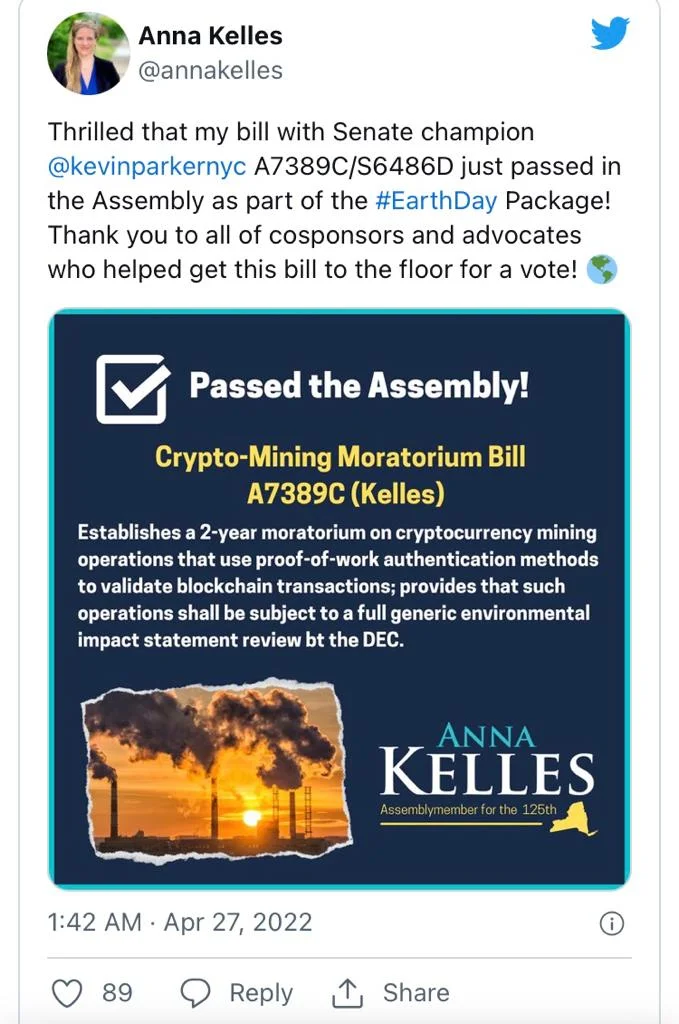The new Bitcoin mining bill will now be sent to the Senate for consideration before being signed into law by Governor Hochul.

The New York State Assembly passed a bill late Tuesday, April 26, that would impose a two-year ban on all new proof-of-work (PoW) cryptocurrency mining facilities in the state that use a carbon-based fuel to power their operations.
The bill proposed by Anna Kelles would not only impose a two-year moratorium on the approval of new Bitcoin mines, but it would also prevent the renewal of permits issued to existing PoW cryptocurrency miners using carbon-sourced energy from increasing the amount of electricity consumed.

The bill received the necessary support to pass, with 95 in favor and 52 opposed, and will now be carried by Senator Kevin Parker for a vote in the Senate. If passed, the bill will be sent to Governor Kathy Hochul, who will have the option of vetoing it or signing it into law.

The bill would charge the Department of Environmental Conservation (DEC) with preparing a “generic environmental impact statement” to count, locate, and assess the energy consumption and greenhouse gas emissions of PoW miners, as well as their impact on public health.
The Blockchain Association, a cryptocurrency industry advocacy group, had previously called on “pro-tech, pro-innovation, pro-crypto” New York residents to oppose the bill, which they claim resulted in thousands of messages to legislators.
According to the association, the bill was debated for three hours, demonstrating “greater opposition to the mining ban than proponents believed.” In a tweet today, the team stated that it will focus its efforts in the New York Senate to defeat what it refers to as the “anti-technology bill.”
Proposed bans on proof-of-work cryptocurrencies are becoming more common for environmental reasons. In late March, the European Parliament narrowly defeated a similar proposal known as the Markets in Crypto Assets (MiCA) bill, with legislators even considering a ban on Bitcoin trading to enforce the proposed ban on mining.
